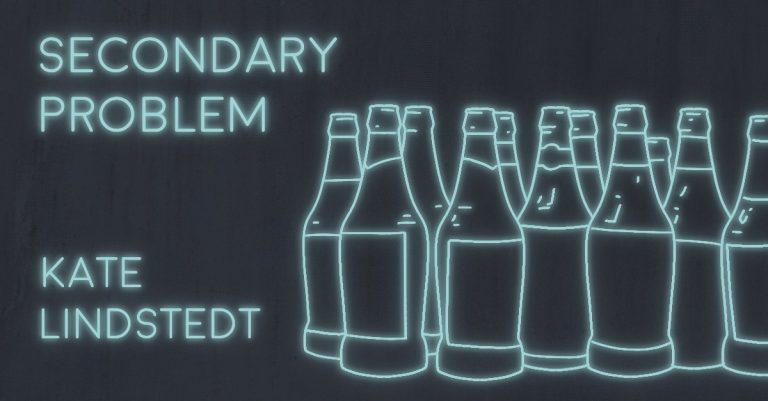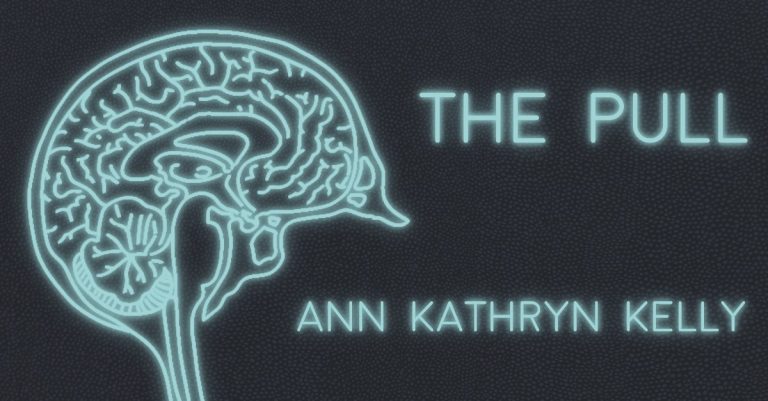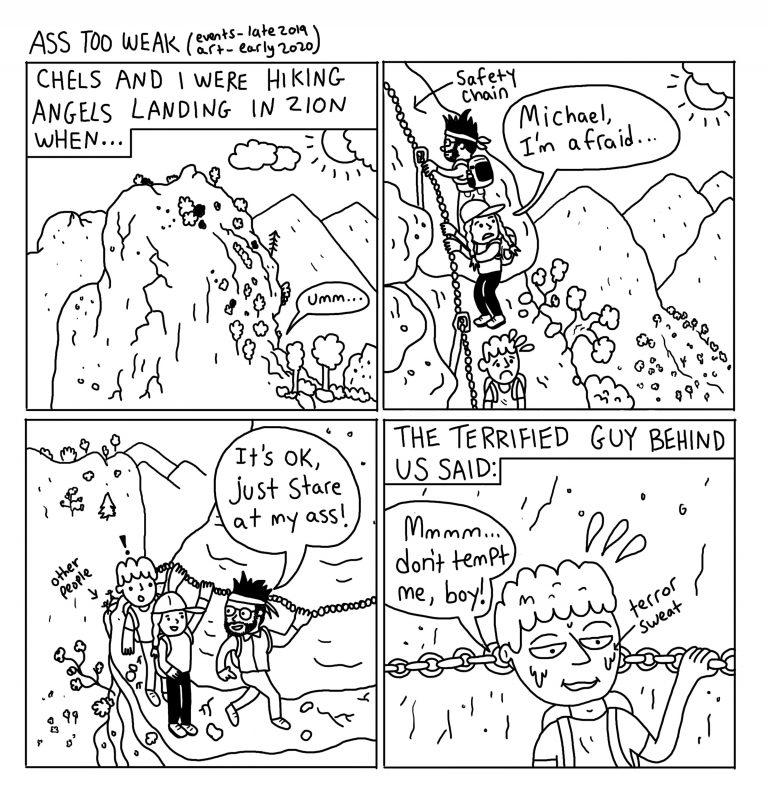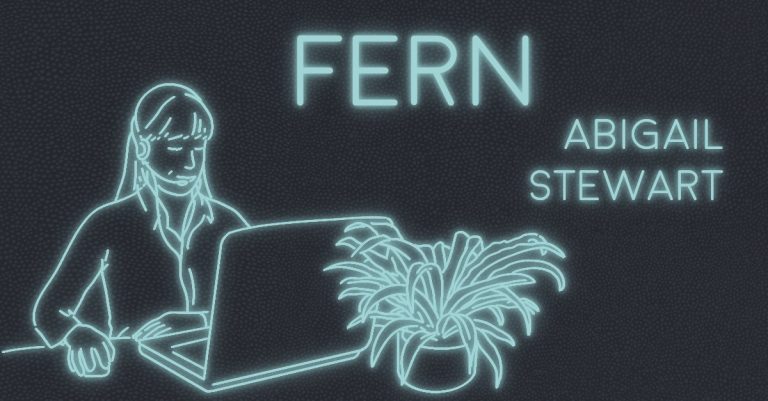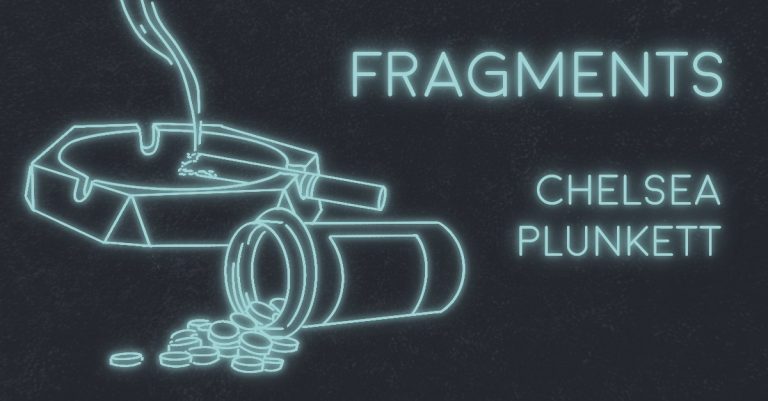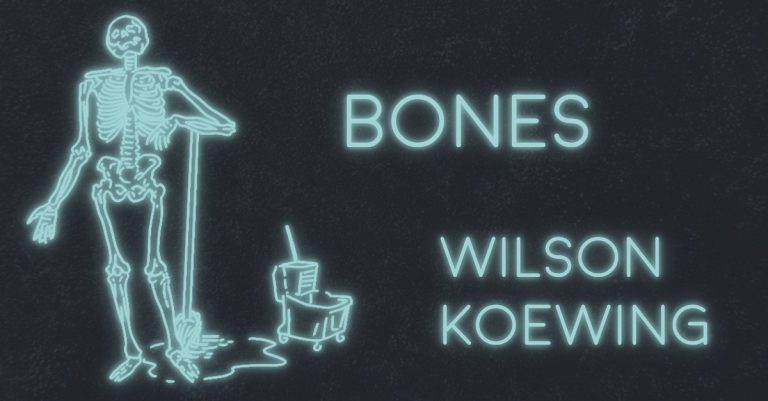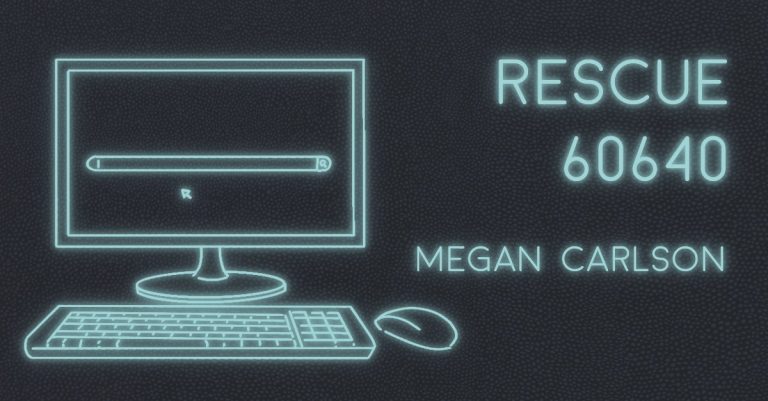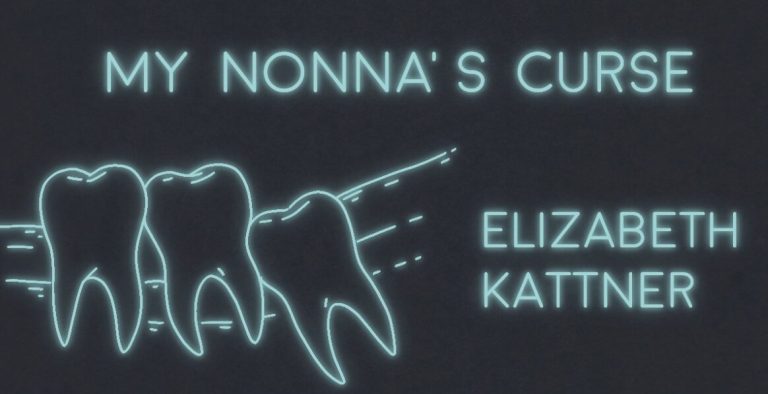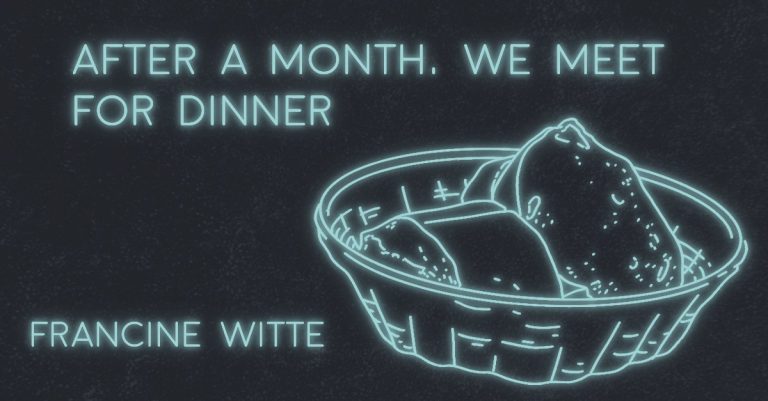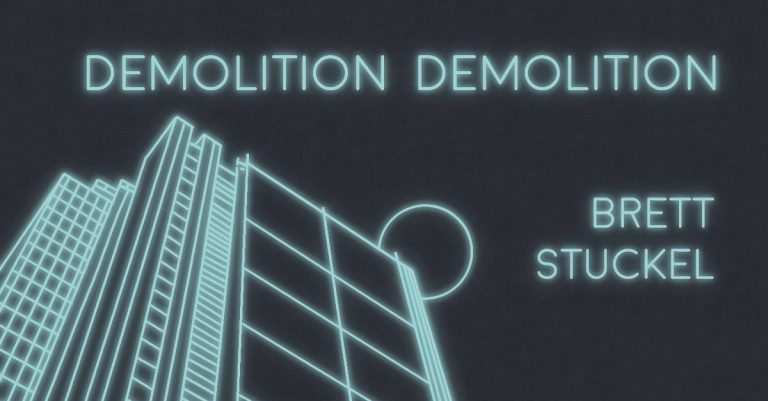
DEMOLITION DEMOLITION by Brett Stuckel
Saturday night, nine to ten to eleven. None of us had asked the skyscraper if it wanted a last meal, but I picked up a cheesesteak and a tall boy of Steel Reserve. I placed the cheesesteak on the altar of the abandoned security desk, poured all sixteen ounces on the mahogany. A steelmaker had built the tower as its headquarters but the company collapsed soon after. Not the skyscraper. It stood defiant, asbestos in its guts.
My watch clicked over to Sunday and the countdown sharpened. Our crew of eight buzzed with the energy of the impending blast. The skyscraper itself was unfazed. Forty-seven years young. It'd been built with too much steel, a factory showroom as much as a corporate office. It didn't rock or creak as the wind picked up from twelve to one to two. Only a constant chatter from the plywood sheets over its busted windows.
Three to four to five. The sun didn't care about our plan. The sky cracked orange through the creekside trees. The local cops rolled in, all chin-thrusts and coffee, and locked down the perimeter. The boss radioed: Time for the final sweep.
Our team has dropped buildings from Anchorage to Aruba, and the final sweep is not to be trusted. I carry a tourniquet in my cargo pocket, and clotting powder and heavy-duty tape. I carry a breather mask and damned if I haven't thought about a parachute. Smooth railings cut hands, elevator shafts hop in your path. This business is science but the final sweep is witchcraft.
We ignored the sagging cheesesteak and climbed the stairs. We peeked into each floor, called out the legal mumbo-jumbo that absolves our company of liability. They even give us little cards to read from, but we have it memorized. And we prefer to embellish. We check as best we can, but fast.
The sun was all the way up and streaky when we exited the tower. No people, no ghosts, not even in the murky boardroom. Just our echoes. For once nobody got sliced, a miracle. One more sign that the skyscraper had never matured. It didn't even know what was coming.
We hauled our coolers out past the cops' perimeter, out to the edge of the exclusion zone. We sat on our hard hats, trusting the rubble wouldn't take a shot. The whistle blew.
Damn—impressive.
***
I was born to the steelmakers. An x-shaped onyx tower. Or maybe plus-shaped, the symbol they thought would always precede the daily change of their stock price. They built me as their worldwide headquarters two miles from the mills. I'm no headquarters, though. The headquarters was the people they hired to think of steel all day, the papers they printed, their telephones and screens. Me, I just did my job, kept everything quiet and cool, and enjoyed the view.
Their company failed thirty-four years later. Everyone accused me of asbestos, and nobody bothered me except the occasional explorer with a flashlight. But that couldn't last forever. Progress must be made. The town sold me to a swoop-in developer who planned to crumble me and make apartments and predictable shops. I could hear them figuring it out in city hall. I can hear farther than you'd think.
Crews took a year to extract my insulation; other crews pared my base to structural beams. Enough room for a battle of bumper cars. The team was reverent, at least. They preserved my security desk and even brought me dinner. I watched the drivers slow on Eighth Avenue and honk and flash their cameras. I only felt bad for the plywood that bandaged my missing windows. The plywood didn't ask to get wrapped up in this. But that's what plywood does, I guess. It goes where you tell it. Steel is a little tougher to persuade.
Morning: My old friend shot a molten streak of support. The police made a ring around my yard while the crew searched one last time for heartbeats, yelling and nervous. Unnecessarily. With everyone out, they blew the blast whistle. I heard the factory whistle that birthed me, the whistle that sounded daily as I grew, the quitting whistle I'd been built to mute. They love to blow a whistle to tell you what to do. The whistle froze me, and I almost followed it, I almost forgot my plan. But then I braced—and showed the world you can defy the whistle.

